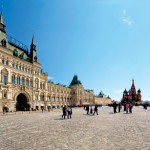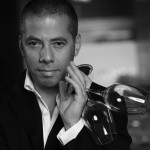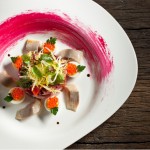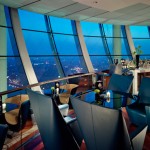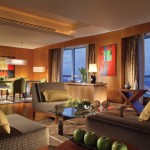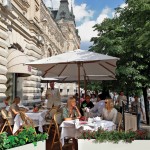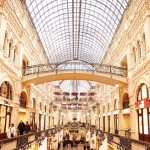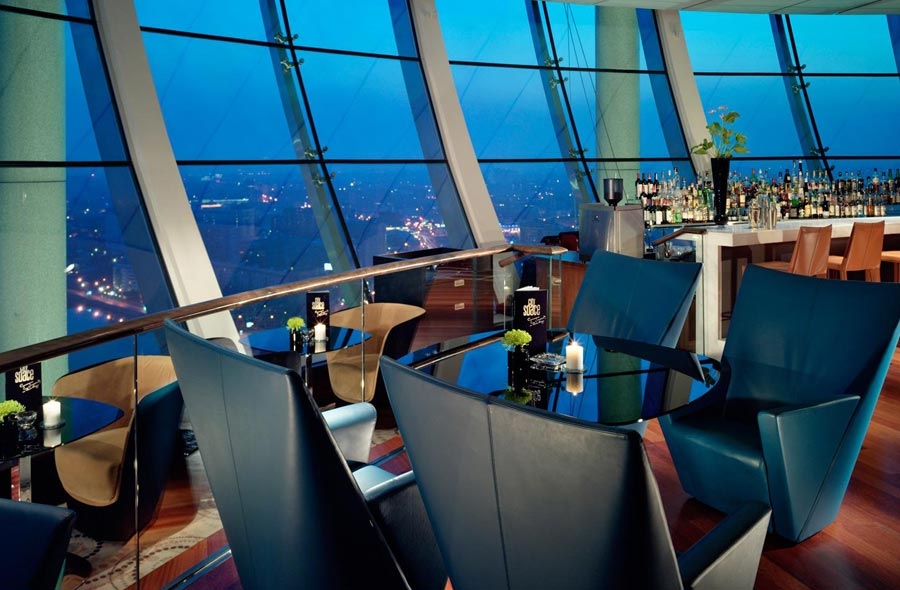
It is just over twenty years now since the collapse of the Soviet Union, and it is my very first time in Moscow.
I have read about government reform and social advances, but it was my firsthand experience that amazed me on my visit to this newly revitalized cosmopolitan city. The Russian capital has the largest number of billionaire residents in the world, up again from last year. With some newfound freedom, and the extra capital overflowing from the pockets of oligarchs (the powerful new citizens of Moscow), the city has experienced a rebirth. I spoke with a few of these wealthy entrepreneurial citizens as well as others who are not so wealthy who reveal some of the good, the bad and the ugly since the dissolution of the USSR.
Gone are the long lines and scarcities at the food stores and gas stations. Moscow is flourishing with abundance. Forgotten are the days of insufficient and drab fashion options. You name it, and they’ve got it now, as long as it is synonymous with the terms ‘designer’ and ‘luxury.’ They have everything from Chanel and Gucci boutiques to five star hotels and international cuisine, and, of course, an arresting amount of vehicles worth over $100K cruising around town. Muscovites want to be seen in all the right places, with the right crowd and dressed in the right labels.
“I tell my children these stories of shortages when I was growing up, and they cannot believe me,” states Arkady Novikov, founder and owner of his namesake restaurant group. Novikov is the rags-to-riches story of a boy who remembers “sharing one tomato with my mother and grandmother for a meal,” and being a young man who could not even get hired at McDonalds as a cook, and who is now the owner of Novikov Group, which consists of over eighty restaurants and retail establishments. Novikov grew up in a small apartment, yet now counts Gianni Versace’s former villa on Lake Como as one of his residences. After my time spent with him one afternoon, I can honestly say he is a sincerely humble man. “It needs a lot of work,” he says of the $52 million Versace property, gesturing as if purchasing such an iconic property were not a paramount achievement. Not bad for someone who achieved all of his success in 20 years and on a $50K loan, whose reported revenue is now over $200 million per year. “Success of my family is first,” Novikov replies with conviction, “success is sloboda (freedom).”
Expensive restaurants are popping up all over Moscow lately. The diverse menu selections at the trendy Manon restaurant of the Maison Dellos group were described by our waiter as “New Moscow cuisine.” We feasted on “Russian haute cuisine” selected by French Chef Fabrice Salvador that included potato and black truffle soup, caviar sushi roll, and Iberian pork with potato mousse. The interior décor is as eclectic and as exquisite as the cuisine. “Mr. Dellos used to be a painter, so he has artistic talents,” states manager Vladimir Protasov as we tour this most amazingly creative and tastefully designed establishment. “Thus, the interior décor was designed by him.”
Lavish, glamorous, and sexy, yet mixed with some industrialism, the interiors are up to par with the best I have ever seen. Antiqued mirrors, distressed wood floors, and patinaed copper sconces are all balanced with the richly colored velvet chairs, and the ornate molding dropped from the ceiling as if to elegantly disguise the intentionally exposed industrial elements behind.
Speaking of sexy, “models, businessmen and celebrities,” are among those who Protasov lists as high profile regulars. It was almost midnight, the sun finally retired for the evening in this long, summer white night, and it was the start of something beautiful. “Very beautiful people,” he says with a big grin as we stand admiring the crowd around us on the rooftop terrace of Manon. I hope the new Manon will be drawing the same crowd when they open in New York City this year.
You may have heard of Andrey Dellos’ first and most successful restaurant, Café Pushkin, with locations in Moscow, Paris and New York. My dinner at the Café Pushkin was without a doubt one of my top ten meals ever. Café Pushkin is arguably the best gourmet restaurant offering authentic Russian fare, “a traditional cuisine of Russian nobility.” The atmosphere takes you to aristocratic 19th century Russia. I did eat like a king, as have other well-known guests including President Clinton, Nicolas Sarkozy, Jack Nicholson, Quentin Tarantino, Angelina Jolie, Will Smith, Meryl Streep, Gérard Depardieu, Catherine Deneuve, and so on. Maison Dellos should be renamed Mansion Dellos with its now 11 restaurants, catering companies, candy factory, boutiques, and much more with more to come.
The transition of an oppressed communist country going democratic has turned this town upside down. The party and the nightclub scene in Moscow went from nonexistent to earning its internationally renowned reputation for partygoers. This is where the flashy cash comes out for all to see, and where Moscow is most expensive. Money fuels the inevitable and unnecessary pretentiousness you find particularly in the club scene, but new money always takes it a step further. “Even wearing the latest Prada may not get you past the ‘face control’ at the door,” as was recently reported in the World Travel Guide in its coverage of nightclubs in Moscow.
“We have been called ‘the trend setting bar’,” states manager Bek Narzy at City Space Bar. Narzy, a celebrity mixologist, has taken this establishment to its greatness by making the list of the “Top 10 Bars in the World” (Bartender’s Guide, 2008). “I’m a bartender,” Narzy explains. “We are psychiatrists. You come to the bar, and I can read you.” With his eyes pointing at one man, he says, “You’re a doctor,” then to another individual across the lounge, “and you’re a pimp.” Narzy came to Moscow from London just as the nightlife was increasing. He was hired on the spot due to his proficient experience, and has elevated himself to become in high demand with a constant schedule of events.
“Francis Ford Coppola, Andy Garcia, and Mr. Big (John James Preston) came in for dinner one night together,” Narzy says of the famous faces he’s seen at an event at Restaurant & Bar 60 in Moscow. Located on the 60th floor of the Federation Tower, 60 is the highest restaurant in Europe. Naomi Campbell, who was accompanied by Russian billionaire beau Vladislav Doronin, has been named as one of numerous models who have also dined at the trendy restaurant.
This July, Narzy is being summoned to host a party at another more notable event: the St. Petersburg International Economic Forum. “There will be an after party for only 40 guests,” Narzy illustrates. “President Putin is one of them, so you can imagine who the other 39 will be.” Who knows, maybe a few stiff drinks are what they need to create world peace and put an end to world hunger.
Moscow currently ranks as the fourth most expensive city in the world, and includes 79 individual billionaire residents. “The combined fortunes of Moscow’s billionaire population top $375 billion, which amounts to more privately amassed wealth than in any other city in the world,” reports Morgan Brennan at Forbes.com. These wealthy individuals have breathed new life into Russia, fueling its economy with money, more jobs and opportunities — these being their good contributions to their society. I prefer not to go into the utterly disturbing examples of criminal activity by which means some oligarchs have accumulated their bundles of money. I’ll leave that depressing research to you.
Russian fashion designers have reached top echelon status in the fashion world in recent years with designers like Slavic seductress Ulyana Sergeenko. The highly regarded couturier, Valentin Yudashkin, is the internationally acclaimed designer whose creations have been exhibited at the Metropolitan Museum in New York, the Louvre and the California Museum of Fashion. He is responsible for the much talked about redesign of the country’s military uniforms for all branches of the Russian armed service. This goes to show how important fashion is to Russians. As if a man in uniform did not conjure up enough fantasies, a soldier who dons designer digs would make anybody surrender. I’m in favor of this innovative and humane approach towards strife. Why didn’t we think of that?
Bosco di Ciliegi is the mother of all retailers in Moscow, especially in the luxury goods sector. Their “universe” includes the iconic GUM shopping mall located at the Red Square. It offers a discriminating collection of supreme labels such as Dior, La Perla, Gaultier, Zegna and Armani. All of these franchises are owned and operated by Bosco. “We operate each boutique,” explains Olga Yudkis, head of PR with Bosco, on my private tour of the jaw-dropping historic building built in the late 1800s. At one end of the mall awaits a slew of drivers, each in a Benz, Bentley or Range Rover, with car running, ready and patiently awaiting the Mrs. to return upon completion of her necessary extravagant shopping.
“The themed décor changes with every season,” Yudkis describes as we walk along blossoming cherry trees with Electra cruiser bikes hanging above and hot air balloons floating mid-air, representing the current summer season. She clarifies of the company, “It is a unique business where we operate all functions of each boutique that includes over 200 mono-brand stores.” This includes the numerous “Bosco” brand names such as BoscoUomo/Bambino/Scarpa. The Bosco Empire, founded by current President and CEO, Mikhail Kusnirovich, reported an estimated $794 million in sales for 2011 — an increase of 24 percent in revenue from the previous year.
All the power to him, I say, so long as the wealth runneth over. Bosco is the sponsor of the official Russian Olympic uniforms and has been the equipment supplier since 2002. Have I emphasized enough just how important fashion is to the Russians? “If you’re successful but not beautiful, this is not so interesting.” This statement was ironically made by the middle-aged, big bellied, bearded Ruski, Kusnirovich, during an interview in 2002 on the new uniforms. He explains, “In Russia, people greet you on the way you dress.” A vain statement, yet it is still a most generous gesture to finance the uniforms in the past decade for all 400+ Olympic athletes for such a paramount event where the world is watching.
The multitude of multi-billionaires and luxury locales and goods go hand in hand and has become emblematic of Moscow society today. After all, new money is always flashy and cultivates intemperance in many aspects in life. “A Russian will buy himself an expensive watch, but not have anything invested in a retirement fund,” a foreign businessman criticizes. But is it because they are new to money, or is it because they are not confident investing in their unstable economy?
“Our third largest expense for our hotel is security,” divulges General Manager Marc Olendorf at the Swissotel Krasnye Holmy, Moscow. “But don’t get me wrong, it is not because it is not a safe city.” He continues to explain that perhaps it is more due to what the people of Moscow have been accustomed to during Soviet times. Or perhaps, it is a V.I.P. status symbol that appeals to the people. Either way, you cannot miss them: well suited men with ear pieces stand firmly and silently with clasped hands in front. Focused, they are en guard to any potential mishap. This I describe only of the private security guards that are in addition to the government armed officers and military presence. It gave me both an odd sense of security and fear. Nevertheless, it is accepted and expected.
“Moscow is not representative of Russia as a whole,” explains Natalya, a working class resident of the metropolis, as we discuss the new wealth. “Take a drive just outside of Moscow and you will see what Russia is really like.” She was right. There were no signs of luxe living in or around the tall, drab housing buildings, compacted and arranged like standing dominos built during the Soviet era. According to a recent study by Moscow’s Higher School of Economics, 60 percent of the Russian population is either no better off now or worse off financially than 20 years ago.
Truth be told, the sole Louis Vuitton boutique in all of Russia can only be found in Moscow. The few wealthy individuals I mention have somewhat of a monopoly within the category of business they opportunistically selected. There is still a large gap between social classes. Nepotism and the whole “who you know” approach to finding a job or other potential prosperous opportunity is still the biggest asset for individuals. For as much that has improved, there is still much room for improvement.
My two-week trip to Moscow finally came to an end, and I want to conclude by making a wish. My wish is for the people of Russia to continue down the path of democracy and capitalism, and for the oligarchs to continue to share the wealth through philanthropy and as employers to help create a better life for everyone, as I just do not believe it is fun at the top alone. Besides, people look so much better dressed in humility than any other label.


